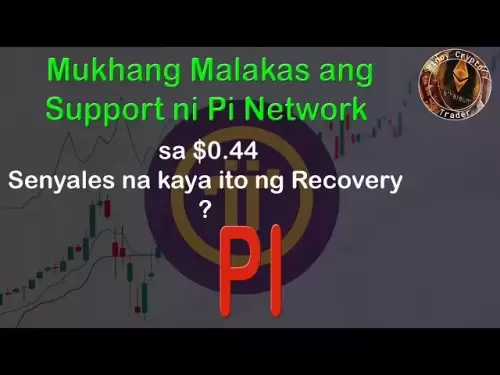-
 Bitcoin
Bitcoin $108,708.8110
0.60% -
 Ethereum
Ethereum $2,561.6057
1.91% -
 Tether USDt
Tether USDt $1.0001
-0.03% -
 XRP
XRP $2.2795
0.57% -
 BNB
BNB $662.2393
1.00% -
 Solana
Solana $153.1346
3.74% -
 USDC
USDC $1.0000
0.00% -
 TRON
TRON $0.2877
0.97% -
 Dogecoin
Dogecoin $0.1710
3.93% -
 Cardano
Cardano $0.5871
1.61% -
 Hyperliquid
Hyperliquid $39.6663
1.68% -
 Sui
Sui $2.9032
0.79% -
 Bitcoin Cash
Bitcoin Cash $496.1879
1.71% -
 Chainlink
Chainlink $13.5807
3.01% -
 UNUS SED LEO
UNUS SED LEO $9.0777
0.61% -
 Stellar
Stellar $0.2514
4.51% -
 Avalanche
Avalanche $18.1761
1.86% -
 Shiba Inu
Shiba Inu $0.0...01173
1.72% -
 Toncoin
Toncoin $2.8010
-4.23% -
 Hedera
Hedera $0.1594
3.21% -
 Litecoin
Litecoin $87.0257
-0.53% -
 Monero
Monero $319.1217
1.79% -
 Polkadot
Polkadot $3.3853
0.68% -
 Dai
Dai $0.9999
-0.01% -
 Ethena USDe
Ethena USDe $1.0003
0.02% -
 Bitget Token
Bitget Token $4.3420
-0.97% -
 Uniswap
Uniswap $7.3772
1.39% -
 Aave
Aave $286.6277
5.61% -
 Pepe
Pepe $0.0...09994
2.33% -
 Pi
Pi $0.4589
1.76%
Is PancakeSwap a crypto exchange?
PancakeSwap, a decentralized exchange (DEX) on Binance Smart Chain, offers users greater control over their crypto assets but necessitates responsible key management and awareness of risks like smart contract vulnerabilities and impermanent loss.
Mar 23, 2025 at 01:35 pm

Is PancakeSwap a crypto exchange? The short answer is: not in the traditional sense. While it facilitates the buying, selling, and trading of cryptocurrencies, PancakeSwap operates differently than centralized exchanges (CEXs) like Coinbase or Binance. It's a decentralized exchange (DEX), built on the Binance Smart Chain (BSC). This fundamental difference significantly impacts how it functions and the risks involved.
Understanding the difference between a CEX and a DEX is key. Centralized exchanges act as intermediaries, holding users' funds and facilitating trades. Decentralized exchanges, on the other hand, don't have a central authority controlling the platform. Trades are executed directly between users through smart contracts. This eliminates the need for a trusted third party, but introduces different challenges.
PancakeSwap's decentralized nature means it doesn't require account registration in the same way as CEXs. Users interact with the platform through their own wallets, typically MetaMask or Trust Wallet, holding their private keys. This offers greater control over assets but also places a heavier responsibility on the user to secure their keys. Losing access to your wallet means losing access to your crypto holdings.
Trading on PancakeSwap involves connecting your wallet to the platform and interacting with its user interface. You'll browse available tokens, select the ones you wish to trade, and approve the transaction through your wallet. The trade then executes automatically via smart contracts on the BSC. The speed and fees of these transactions are determined by the network's congestion and the gas fees you pay.
PancakeSwap's liquidity is provided by users who deposit tokens into liquidity pools. These pools are essentially smart contracts that hold pairs of tokens, for example, BNB and CAKE. Providing liquidity allows users to earn fees generated from trades within the pool, a process often referred to as yield farming. However, providing liquidity also carries risks, including impermanent loss.
Impermanent loss occurs when the value of the tokens in a liquidity pool changes relative to each other. If one token appreciates significantly while the other depreciates, you might end up with less value than if you had simply held the tokens individually. Understanding this risk is crucial before participating in liquidity provision.
The security of PancakeSwap relies on the security of the Binance Smart Chain and the smart contracts that govern the platform. While audits are conducted, there's always a risk of vulnerabilities being exploited. Smart contract exploits are a common threat in the DeFi space, potentially resulting in the loss of user funds. Staying informed about any security updates and warnings is essential.
PancakeSwap offers various features beyond simple trading, including farming, staking, and lotteries. Farming involves providing liquidity to earn rewards, while staking involves locking up tokens to earn interest. Lotteries offer a chance to win substantial prizes but involve a degree of risk. Each feature has its own set of mechanics and risks that users should understand before participating.
Another key aspect is the availability of tokens. PancakeSwap lists a vast number of tokens, many of which are relatively new and untested. This expands trading opportunities but also increases the risk of encountering scam tokens or projects with questionable viability. Thorough due diligence is paramount before investing in any token on PancakeSwap.
Frequently Asked Questions:
Q: Is PancakeSwap safe?
A: PancakeSwap's security depends on the security of the Binance Smart Chain and its smart contracts. While audits are performed, there's always a risk of exploits and vulnerabilities. User responsibility in securing their private keys is paramount.
Q: How does PancakeSwap differ from centralized exchanges?
A: PancakeSwap is a decentralized exchange (DEX), meaning it operates without a central authority controlling user funds. Centralized exchanges (CEXs) act as intermediaries, holding user funds and facilitating trades. DEXs offer greater user control but increased responsibility for security.
Q: What are the risks of using PancakeSwap?
A: Risks include smart contract vulnerabilities, impermanent loss from liquidity provision, the potential for scams and rug pulls, and the responsibility of securing your own private keys. Thorough due diligence is crucial.
Q: What is impermanent loss?
A: Impermanent loss is the potential loss of value when providing liquidity to a pool. It occurs when the price ratio of the two tokens in the pool changes significantly compared to when you initially deposited them.
Q: How do I use PancakeSwap?
A: You'll need a compatible wallet like MetaMask or Trust Wallet. Connect your wallet to the PancakeSwap interface, select the tokens you wish to trade, approve the transaction, and execute the trade via smart contracts.
Q: What are gas fees on PancakeSwap?
A: Gas fees are transaction fees paid to the Binance Smart Chain network for processing transactions. These fees vary depending on network congestion.
Q: What are liquidity pools on PancakeSwap?
A: Liquidity pools are smart contracts holding pairs of tokens, providing the liquidity for trades on the platform. Users can deposit tokens into these pools to earn trading fees (yield farming).
Q: What are the benefits of using PancakeSwap?
A: Benefits include greater control over your funds, access to a wide range of tokens, and opportunities for yield farming through liquidity provision and staking.
Disclaimer:info@kdj.com
The information provided is not trading advice. kdj.com does not assume any responsibility for any investments made based on the information provided in this article. Cryptocurrencies are highly volatile and it is highly recommended that you invest with caution after thorough research!
If you believe that the content used on this website infringes your copyright, please contact us immediately (info@kdj.com) and we will delete it promptly.
- Ethereum Price Eyes $2610 Breakout Amidst Institutional Inflows and 'Giga Era' Buzz
- 2025-07-07 20:30:12
- Tariff Deadline, Crypto Bull Run, and Trade Tensions: A Perfect Storm?
- 2025-07-07 20:30:12
- Bitcoin Wallet Hack? Coinbase Exec Sounds the Alarm on $8B Whale Movement
- 2025-07-07 18:30:12
- Mercado Bitcoin, Tokenization, and XRP Ledger: A Latin American Power Play
- 2025-07-07 18:30:12
- XYZVerse, Wall Street, and the Crypto Upswing: What's the Deal?
- 2025-07-07 19:10:12
- AI, Web3, and Communities: Building the Future Together
- 2025-07-07 19:10:12
Related knowledge
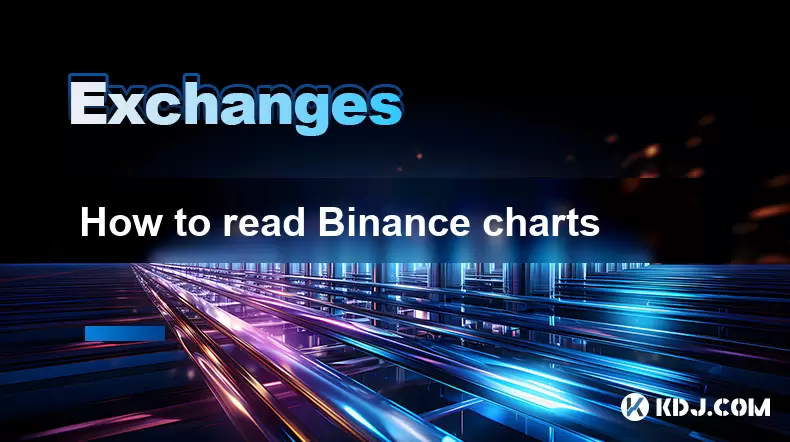
How to read Binance charts
Jul 07,2025 at 08:14pm
Understanding the Basics of Binance ChartsReading Binance charts effectively is essential for making informed trading decisions in the cryptocurrency market. Before diving into technical indicators and candlestick patterns, it's important to understand the basic layout of a chart on the Binance platform. The default chart interface displays price moveme...
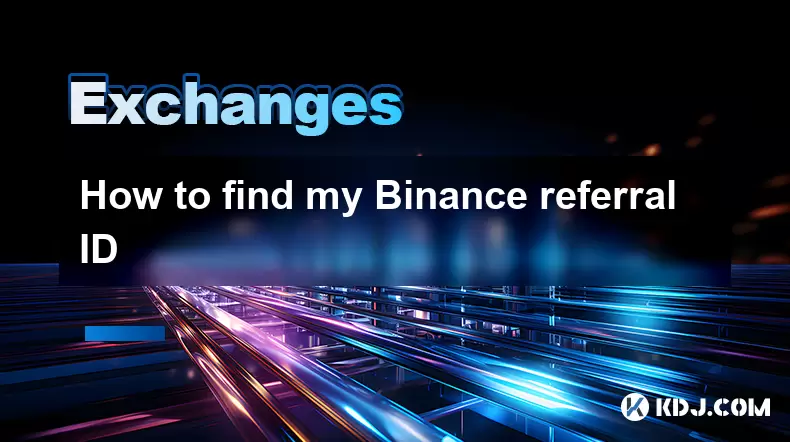
How to find my Binance referral ID
Jul 07,2025 at 06:29pm
What is a Binance Referral ID?A Binance Referral ID is a unique identifier assigned to each user on the Binance platform. This ID allows users to refer new traders to Binance and earn commissions from their trading fees. The referral program is an integral part of Binance’s ecosystem, encouraging community growth and rewarding active participants. Every...
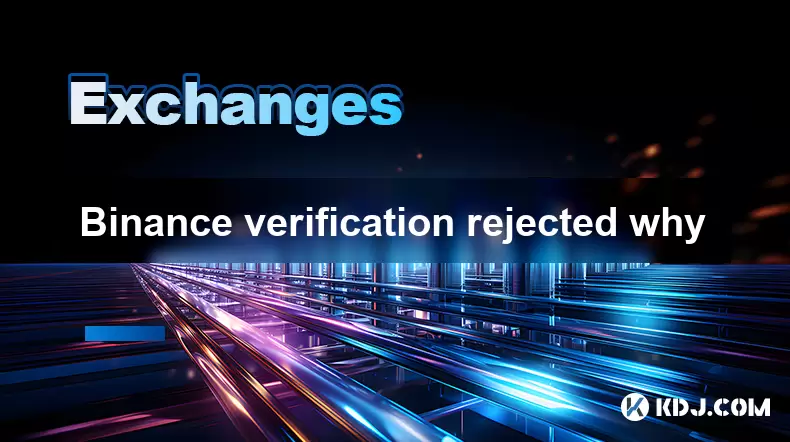
Binance verification rejected why
Jul 07,2025 at 06:57pm
Understanding Binance Verification RejectionIf your Binance verification was rejected, you're likely searching for answers on why this happened and how to resolve it. Binance, as one of the world's largest cryptocurrency exchanges, requires users to complete identity verification to comply with Know Your Customer (KYC) regulations. When a verification r...
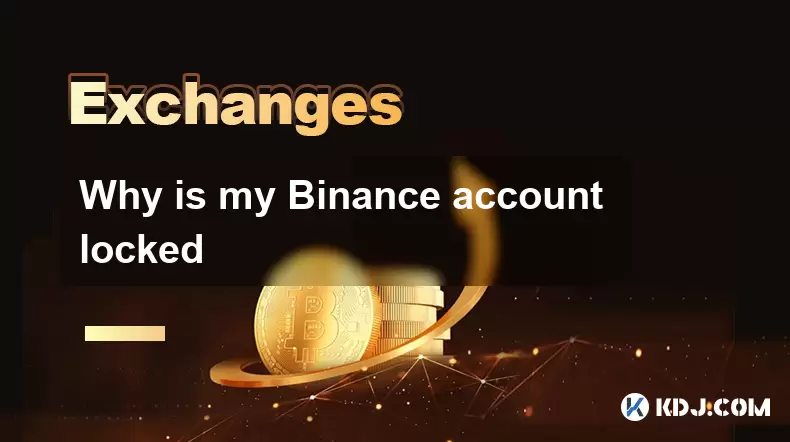
Why is my Binance account locked
Jul 07,2025 at 08:35pm
Why is My Binance Account Locked?If you're encountering the message 'Why is my Binance account locked?', you're not alone. Many users experience unexpected lockouts on their Binance accounts, often due to security measures or compliance protocols. Understanding the reasons behind such actions can help users regain access and prevent future issues. Secur...
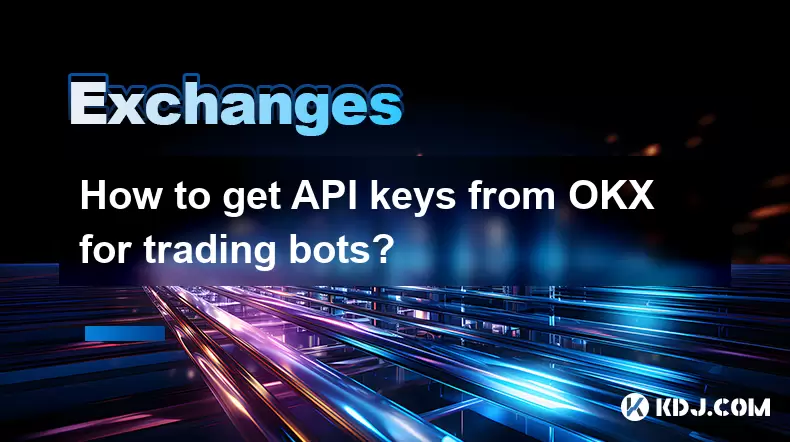
How to get API keys from OKX for trading bots?
Jul 03,2025 at 07:07am
Understanding API Keys on OKXTo interact with the OKX exchange programmatically, especially for building or running trading bots, you need to obtain an API key. An API (Application Programming Interface) key acts as a secure token that allows your bot to communicate with the exchange's servers. On OKX, these keys come with customizable permissions such ...
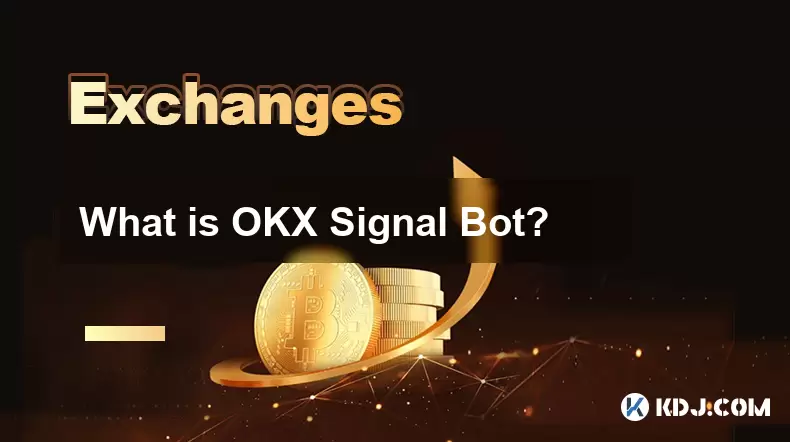
What is OKX Signal Bot?
Jul 02,2025 at 11:01pm
Understanding the Basics of OKX Signal BotThe OKX Signal Bot is a feature within the OKX ecosystem that provides users with automated trading signals and execution capabilities. Designed for both novice and experienced traders, this bot helps identify potential trading opportunities by analyzing market trends, technical indicators, and historical data. ...

How to read Binance charts
Jul 07,2025 at 08:14pm
Understanding the Basics of Binance ChartsReading Binance charts effectively is essential for making informed trading decisions in the cryptocurrency market. Before diving into technical indicators and candlestick patterns, it's important to understand the basic layout of a chart on the Binance platform. The default chart interface displays price moveme...

How to find my Binance referral ID
Jul 07,2025 at 06:29pm
What is a Binance Referral ID?A Binance Referral ID is a unique identifier assigned to each user on the Binance platform. This ID allows users to refer new traders to Binance and earn commissions from their trading fees. The referral program is an integral part of Binance’s ecosystem, encouraging community growth and rewarding active participants. Every...

Binance verification rejected why
Jul 07,2025 at 06:57pm
Understanding Binance Verification RejectionIf your Binance verification was rejected, you're likely searching for answers on why this happened and how to resolve it. Binance, as one of the world's largest cryptocurrency exchanges, requires users to complete identity verification to comply with Know Your Customer (KYC) regulations. When a verification r...

Why is my Binance account locked
Jul 07,2025 at 08:35pm
Why is My Binance Account Locked?If you're encountering the message 'Why is my Binance account locked?', you're not alone. Many users experience unexpected lockouts on their Binance accounts, often due to security measures or compliance protocols. Understanding the reasons behind such actions can help users regain access and prevent future issues. Secur...

How to get API keys from OKX for trading bots?
Jul 03,2025 at 07:07am
Understanding API Keys on OKXTo interact with the OKX exchange programmatically, especially for building or running trading bots, you need to obtain an API key. An API (Application Programming Interface) key acts as a secure token that allows your bot to communicate with the exchange's servers. On OKX, these keys come with customizable permissions such ...

What is OKX Signal Bot?
Jul 02,2025 at 11:01pm
Understanding the Basics of OKX Signal BotThe OKX Signal Bot is a feature within the OKX ecosystem that provides users with automated trading signals and execution capabilities. Designed for both novice and experienced traders, this bot helps identify potential trading opportunities by analyzing market trends, technical indicators, and historical data. ...
See all articles























